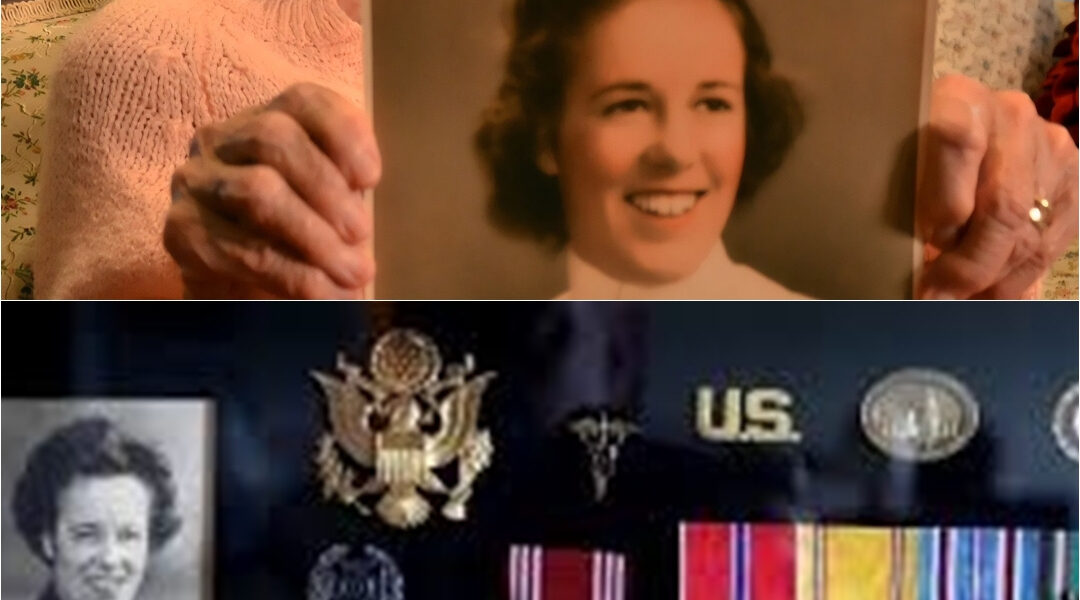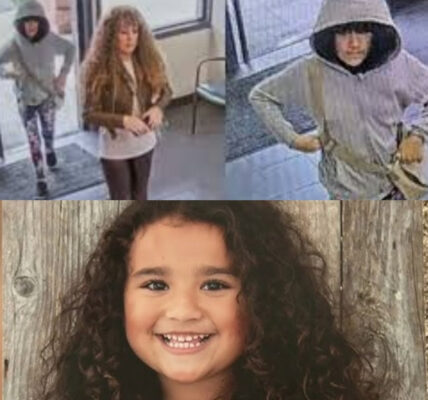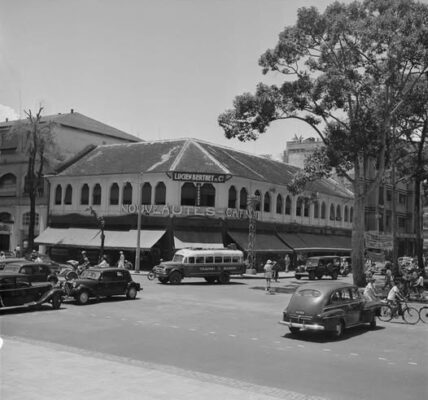
When Pearl Harbor’s fury shattered America’s peace in December 1941, a young woman in Philadelphia felt the tremor not just in her country, but in her heart. Josephine Margaret Pescatore was barely 21 when she graduated as a registered nurse, determined to turn her compassion into service.
The Navy rejected her for being “too short and not weighing enough.” Many might have given up. Josephine didn’t. Instead, she joined the US Army Nurse Corps, trained at Fort Meade, and soon found herself among the women of the 24th Evacuation Hospital bound for war-torn Europe.
Her journey began aboard a creaking Liberty ship with 39 fellow nurses, crossing the Atlantic as the world prepared for D-Day.
The conditions were far from gentle: cramped quarters separated from a thousand G.I.s by nothing more than tarps, a skeptical ship captain who doubted women belonged there, and five nights under fire as the skies lit up like the Fourth of July. Josephine endured it all with quiet resolve.
But nothing—no training, no drill—could prepare her for Normandy.
When her boots hit Omaha Beach, she stepped into a landscape of unimaginable horror: 14,000 young men lay dead, their bodies lining the bloody sand. A petite woman with only a small handbag of cosmetics to tether her to normal life, Josephine walked straight into the storm, not away from it.
As First Lieutenant, she moved with her unit across Europe, from the grinding losses of Operation Market Garden to the frozen nightmare of the Battle of the Bulge.
In canvas tents warmed by sputtering potbelly stoves, she fought a different kind of war—stitching the torn, bandaging the broken, and sitting at the bedsides of the dying.
There was the soldier called “Ken,” who had lost both an arm and a leg. Gangrene stole what was left of his body, but Josephine gave him one last gift—scavenging a pair of glasses so he could glimpse the Statue of Liberty on a postcard, whispering of home as his eyes filled with tears.
There were visits to graves in Holland, where she wept for paratroopers John Kablinski and Nick Patino, young men whose stories she carried back to their families in letters of consolation. She stood firm even when Red Cross tents—clearly marked—were strafed by enemy fire. Through it all, she never let a soldier die alone.
For her extraordinary valor and unshakable humanity, Josephine was awarded the Bronze Star. But medals never defined her. After the war, she married a Texan serviceman, and together they built a marriage that endured six decades.
She went on to lead women’s orthopedics at Fort Sam Houston, shaping new generations of caregivers with the same grit and grace that had carried her through Europe.
Even in her later years, Josephine shared her story with students and communities, not to glorify war, but to remind the world of the power of compassion amid chaos.
Her legacy is not only in the soldiers she saved, but in the spirit she embodied: that true heroism is not the absence of fear or suffering—it is the quiet, stubborn insistence to bring light into the darkest places.
Josephine Margaret Pescatore proved that a young woman once deemed “too small” could stand taller than the storms of history. She healed a broken world one wound, one hand, one heart at a time.




